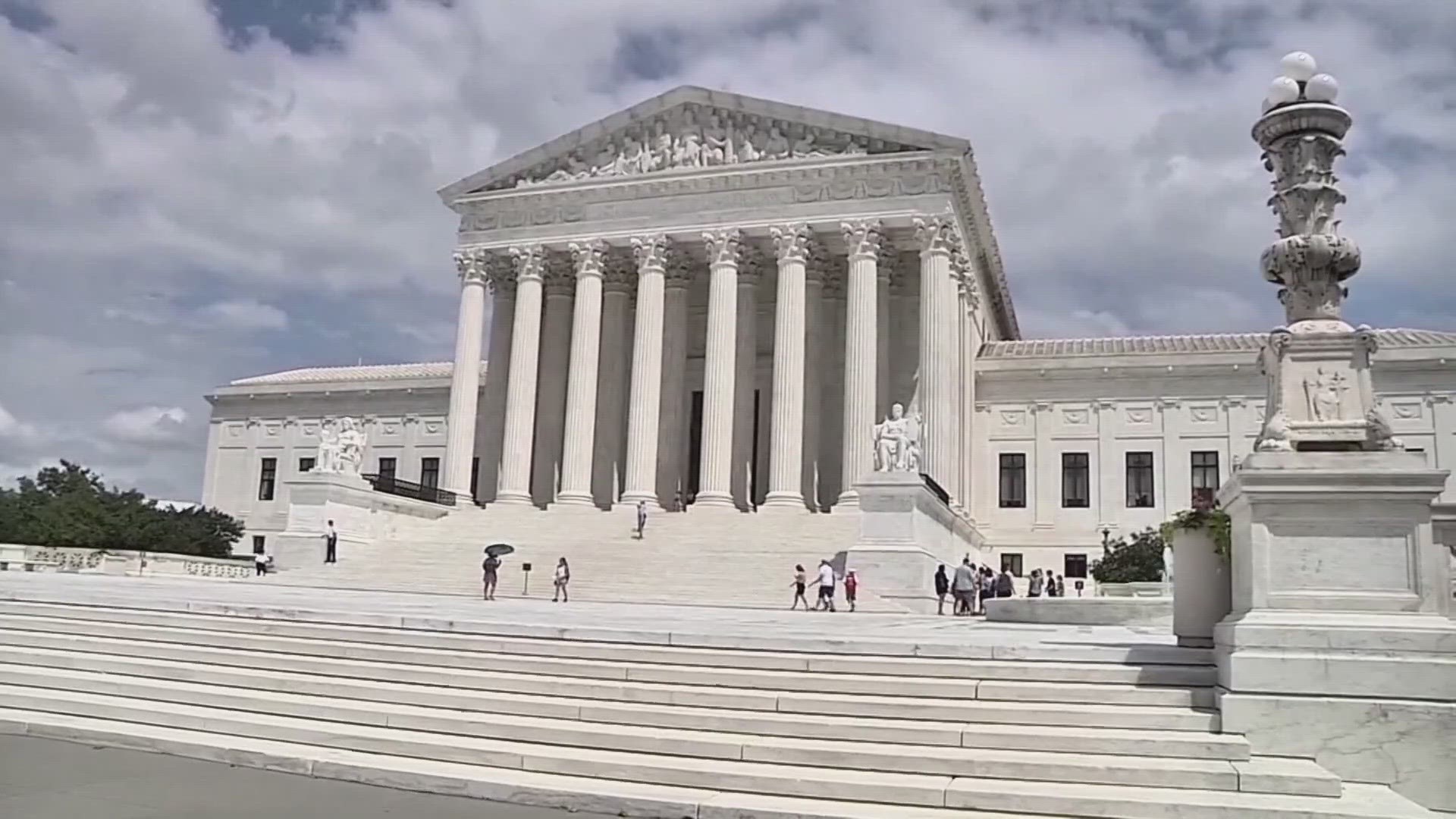BOULDER, Colo. — The U.S. Supreme Court has agreed to review the first-of-its-kind court ruling that former President Donald Trump is an insurrectionist and therefore can't be on the 2024 primary ballot in Colorado.
The nation's top court will have the final say. And once the Supreme Court weighs in, it could affect ballots in more states.
"So nobody is going to be introducing new facts or arguing specifics, it will be a very general conversation. Each side will have half an hour each to make their case at oral argument but that's really just a public show because most of the activity will happen in the written briefs — the 50 pages that each side submits that articulate their view of the arguments," said Doug Spencer, professor of election law at the University of Colorado Boulder.
"It's the written arguments that carry far more weight here and are mainly how justices make their decision," Spencer said.
And in this case, time is limited. Normally, attorneys would have three to four months to write their briefs. Here, they'll have two weeks.
"In this case, the courts have not signaled any specific issue they're going to hear," Spencer said. "So as of right now, unless they give us more guidance, every possible issue that was litigated below is on the table. So the 50-page limit becomes a really big issue because now, the parties need to make editorial choices and legal choices about which issues they want to bring that they think are the strongest and which issues might have to be left out."
Oral arguments are set to begin on Feb. 8.
Spencer said justices may ask clarifying questions or stay silent if they've already made up their mind.
And it's important to remember, the Supreme Court does not televise its hearings. While they may face pressure to do so due to the magnitude of the hearings and calls for transparency in their decision, Spencer said they're unlikely to deviate from tradition here.
But, what we can expect to hear from attorneys, Spencer said, is a focus on history from what writers meant when the 14th amendment was written and the mood of the country and Congress when it was ratified in 1868.
"But this particular Supreme Court has signaled strongly that they care a lot about the original public meaning of constitutional amendments and these original views and the history along a long line of cases: voting, gun rights, abortion, all kinds of different issues. So I expect both sides to make arguments deeply rooted in America's histories and tradition to make their case," Spencer said.
The Supreme Court will hear arguments early next month, meaning they could issue a ruling before Colorado's primary election in March.
In the meantime, the former president's name will appear on Colorado's primary ballot as the state Supreme Court's ruling is on hold pending a decision from the higher court.
SUGGESTED VIDEOS: Politics

